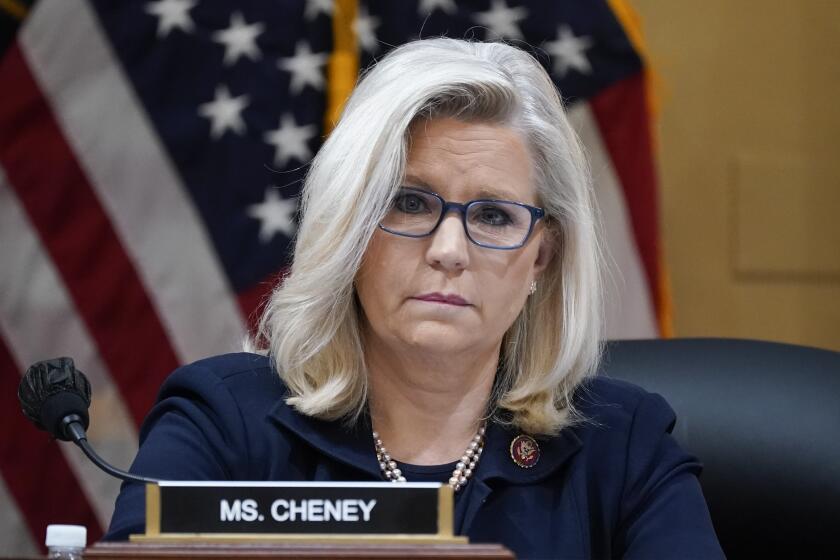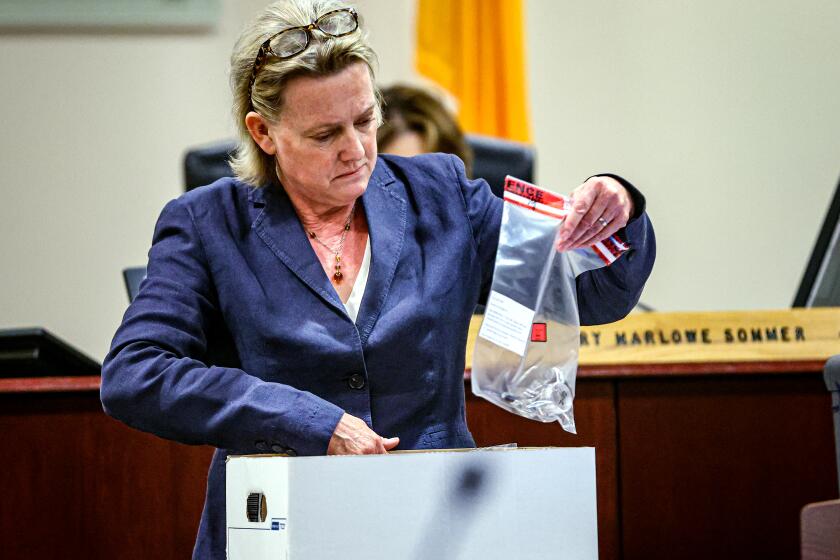Spill makes waves amid Brazil oil boom
When oil leaking from a faulty well bubbled to the surface of the Atlantic Ocean off the coast of Brazil recently, it caused a stir throughout the country.
There were obvious environmental concerns. And Chevron, the U.S. company operating the well, faced accusations of misleading the government even after immediately accepting responsibility for the spill.
But perhaps the biggest reason for the flurry of activity was that for Brazil, the largest country in Latin America, smoothly functioning wells are essential to its plans for deep-water oil extraction in the coming years. The country is counting on vastly expanding its oil production to boost the momentum it has enjoyed while other nations have struggled through the worldwide economic crisis.
Brazil’s economy already has powered forward, even as the U.S. and Europe faltered, buoyed by exports of commodities such as iron ore and soybeans to Asia. That, combined with moderate social programs and a consumer spending boom, has lifted tens of millions of Brazilians out of poverty in recent years.
Now the state-run oil company, Petrobras, is beginning to embark on one of the world’s most difficult deep-water oil extraction projects. Analysts say that Brazil, the world’s 13th largest oil producer, could push into the top 5 by 2020.
The discovery in 2007 of pre-salt reserves, so called because they lie under a hard-to-penetrate layer of salt and rock deep below the ocean’s surface, gave Brazil the chance to more than double oil production. Last year, Petrobras — which by law must head every project but will also work with other companies — completed the largest share issuance in history to prepare for investments that will total up to $224 billion over the next five years. Total investments could surpass $1 trillion over a decade.
“This will be one of the largest investment projects in all of human history,” said Pedro Cordeiro, an oil expert at the Bain & Co. consultancy in Sao Paulo. “Putting a man on the moon, for example, cost 30% less in current terms than will be spent [on Brazil’s oil project] in just the next five years.”
Petrobras is widely regarded as a worldwide leader in the very complicated business of deep-water oil extraction. For this type of operation, there is probably no better or technologically advanced company, analysts say. But the mission will be difficult.
“This is a new frontier,” said Mauro Yuji Hayashi, head of planning for the pre-salt project at Petrobras.
There are an estimated 50 billion to 70 billion barrels of oil in the explored areas of the pre-salt region, on top of the 17 billion of reserves that Brazil already knew about. Analysts think that investment plans should have the country pumping out about 5 million barrels per day by 2020, more than Venezuela, currently the oil powerhouse in Latin America.
The oil and gas sector makes up about 10% of Brazil’s economy, now the sixth-largest in the world. By 2020, the sector could account for 25% of the economy, making it the largest.
“This [oil extraction project] will reaffirm and amplify considerably the changes that are taking place,” said Peter Hakim, president emeritus at Inter-American Dialogue, a Washington-based think tank focusing on hemispheric affairs. “Brazil has emerged as a global power.”
As it turned out, the Nov. 7 accident that caused the spill 230 miles off the coast of Rio de Janeiro proved fairly small, less than 3,000 barrels, and relatively easy to contain. Brazil’s federal prosecutor, nevertheless, said in mid-December that the country wanted Chevron and Transocean Ltd., which operated the rig responsible for drilling the well that resulted in the leak, to shut down their operations. The companies are being sued for billions of dollars as a consequence of the accident, apparently caused by underestimating pressure.
Chevron is accused of editing video of the spill to hide its severity from the government, and of informing the government that the company was embarking on a cleanup process without mentioning that the tool they needed to do so wasn’t even in the country.
The petroleum spilled never reached the shore, and the event was minuscule compared with the 2010 BP catastrophe in the Gulf of Mexico, which at its worst was gushing more than 60,000 barrels per day. But the Brazilian government — which has stricter environmental regulations for oil extraction than the U.S. — is coming down hard on Chevron.
“We may be a tropical country, but we’re not a banana republic,” Carlos Minc, Brazil’s environment minister, told the Financial Times. “Everyone wants to come to Brazil, and if we’re not strict with [Chevron], this place is going to turn into a pool of oil.”
Petrobras’ Hayashi said the spill, which did not involve the pre-salt project, was a reminder that there is no such thing as an infallible or risk-free activity in any industry.
The potential upside to the pre-salt project for Brazil is huge, and many analysts think the country is likely to pull off more or less what officials say it will. But the risks are not only environmental.
The Brazilian law that requires Petrobras to lead all the projects could stretch the company thin and make foreign companies less willing to provide the help it may need, said Christopher Garman, director for Latin America at Eurasia Group in New York.
Brazil seems more concerned about maintaining national control and avoiding the “Dutch disease,” in which new oil-exporting countries become dominated by the industry and an overvalued currency kills off other sectors.
The government is counting on a set of laws to also build up a national oil services industry, providing things like ships and platforms, as well as plans for a sovereign wealth fund, to spread around the benefits of the oil. Since the Brazilian economy is so big, it’s unlikely to be dominated by oil in the way that Venezuela is, but Brazil is looking closely at oil success stories such as Norway, analysts said.
“One nightmare scenario is that Brazil misses production targets because of a framework that makes it less attractive for other companies to participate,” Garman said. “Or the government may say, ‘We’re going to go a bit more slowly so we can develop a local oil service industry.’ This is a fair trade-off, but there are still risks there, too.
“The pre-salt discovery,” he said, “is not as simple as finding a winning lottery ticket.”
Bevins is a special correspondent.
More to Read
Sign up for Essential California
The most important California stories and recommendations in your inbox every morning.
You may occasionally receive promotional content from the Los Angeles Times.






